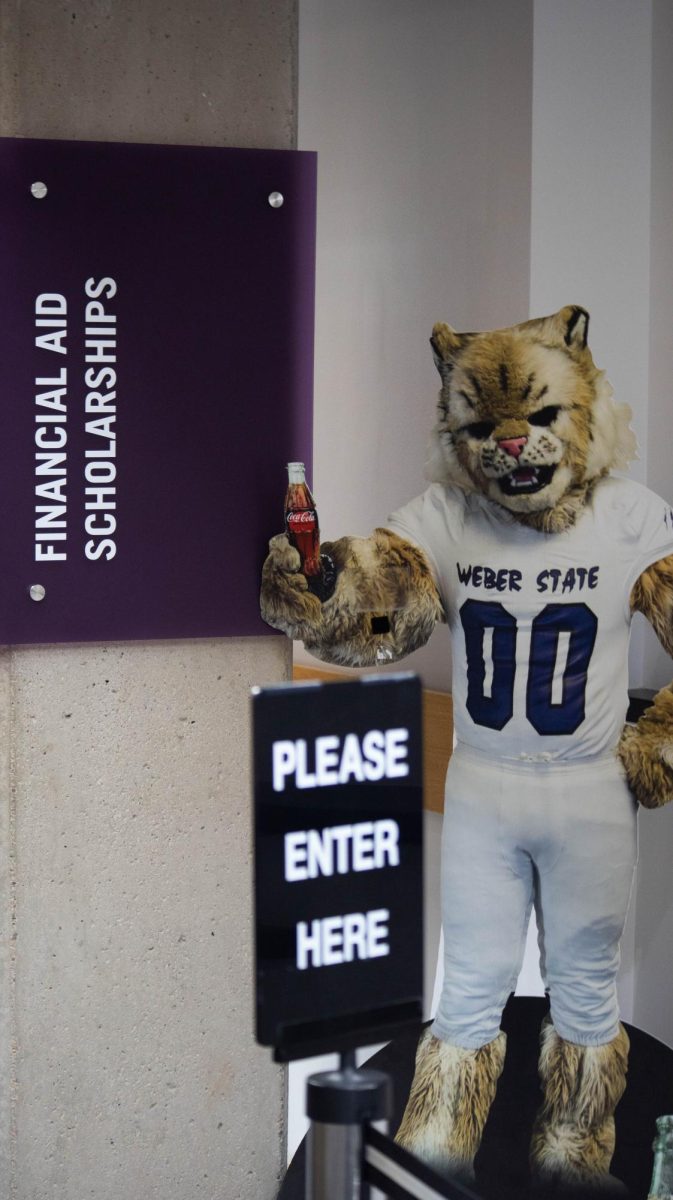Nov. 17 of 2011 marks the 36th annual event for the Great American Smokeout, challenging billions of American smokers to kick their habit for at least 24 hours to help them quit officially. This year, Weber State University held this event for their students, community members and employees.
The event, designed to “help create a world with less cancer and more birthdays,” was held by the Employee Wellness Center and the Multicultural Student Center on campus.
The Employee Wellness Center gave out free tobacco quit-kits from Weber-Morgan Health Department, a list of local resources to help quit smoking, information on tobacco cessation tools (electronic cigarettes), and details on Healthy Utah’s $100 tobacco cessation rebate.
“Only 5 percent of our employees smoke,” said Rachel Smith, Employee Wellness coordinator.”This is our first year of the Great American Smokeout held by the Employee Wellness Center.”
The department handed out many treats, cards and a toy to help keep employees’ minds off of smoking. Smith said the candies were to help smokers have something to chew or use in their mouth since they are used to having cigarettes in their mouths.
Smith suggested reading the pamphlets they had in the quit-kit packets, which included information about secondhand smoking and how to quit.
According to the American Cancer Society, the sponsors of the Great American Smokeout, said there are ways to quitting smoking, such as medications, therapy, nicotine-replacement therapy (gums or patches), a smoker’s diary and telephone hotlines.
The American Cancer Society’s research included statistics of secondhand smoke causing 46,000 heart disease deaths, 3,400 lung cancer deaths and 1 million cases of childhood asthma. It said secondhand smoke is a toxic substance that gives cancer and heart disease if breathed in from the air from other smokers. More than 4,000 chemicals are in secondhand smoke, mainly toxic metals.
The Employee Wellness Center provided information about the use of electronic cigarettes (e-cigarettes). These electronically vaporize nicotine, creating a mist that is inhaled into the lungs.
E-cigarettes, however, are not recommended as a safe alternate to smoking or tobacco use. These devices are banned in some states, mainly in New York, Oregon and California.
“I’m trying to get the Student Wellness to do a Great American Smokeout,” said Teresa Holp, a former intern for Student Wellness, back in 2010. She said she wanted to recommend programs they can use to help students around campus at WSU quit smoking.
This year, though, Student Wellness held a Great American Smokeout for students at WSU and community members in the Ogden area. They included booths with pamphlets and information on quitting smoking and its effects.
Smith said, for those wanting to quit smoking, she suggests using the free quitting service Utah QuitNet, texting “truth” to the Utah Tobacco Quit hotline or checking out the pamphlets from the American Cancer Society for more information.


















